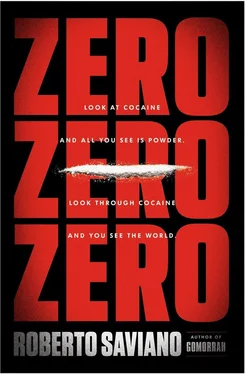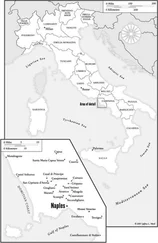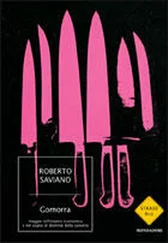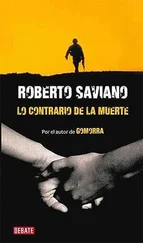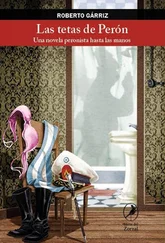Bladimir rarely left his house. Almost never. He would write holed up inside. Some of his colleagues said he’d resigned himself to the idea that he’d be killed: The government offered no assistance; no inquiries were being conducted about the threats; no protection had been assigned to him. His biggest fear wasn’t being killed, though. It’s the same for everyone. But it’s not madness, or a secret suicide wish. You don’t go looking for death — you’d be a fool if you did. But you know it’s there.
November 2, 2009: It happened very quickly. Kidnapped. Tortured. Killed.
His colleagues’ efforts were all in vain. They were scandalized by the apathy of the forces of law and order, who had called Bladimir paranoid. The usual defamation technique: no investigations; no inquiries into what Bladimir had uncovered. There’s no investigative journalism in Durango anymore. It died along with Bladimir Antuna García.
I looked into the abyss and I became a monster. It couldn’t have gone any other way. With one hand you touch the origins of violence, with the other you caress the roots of ferocity. You’ve got one eye trained on the foundations of buildings, one ear tuned to the beat of financial flows. At first it’s all a dark cauldron; you can’t see a thing, just something simmering below the surface, teeming as if with worms, trying to break through the top crust. Then the figures start to take shape, but it’s still all confused, embryonic, superimposed. Drawing on all your skills and senses you push yourself forward and lean out over the abyss. The chronology of powers begins to make sense, the blood that before ran off in a thousand different directions now flows into one big river; the money stops fluttering around and comes to settle on the ground so you can count it. You lean out a little more. You hook your foot to the rock, practically suspended over the void now. And then… darkness. Like at the beginning, but this time there’s no simmering; there’s only a smooth, shiny surface, a mirror of black pitch. That’s when you realize you’ve gone over to the other side; now it’s the abyss that wants to peer inside you. Rummage around. Tear you to pieces. Break you apart. The abyss of narco-trafficking that looks inside you is not the — all things considered — reassuring rite of indignation. It is not the fear that nothing makes any sense. That would be too simple. Too easy. You’ve identified your target; now it’s up to you to strike, up to you to put things right. The abyss of narco-trafficking opens onto a world that works, an efficient world, a world with rules. A world that makes sense. Then you don’t trust anyone anymore: the media, your family, your friends. Everyone is talking about a reality that you know is bogus. Slowly everything starts feeling foreign to you, and your world fills with new protagonists. Bosses, massacres, trials. Killings, tortures, cartels. Dividends, stocks, banks. Betrayals, suspicions, accusations. Cocaine. All you know is them, and they know you, but it doesn’t mean that the world that was yours before disappears. No. You go on living in the midst of it. You keep on doing what you were doing before, but now the questions you ask yourself rise up out of the abyss. The businessman, the professor, the manager. The student, the dairy farmer, the policeman. Your friend, your relative, your girlfriend. Do they come from the abyss as well? And even if they’re honest, how much like the abyss are they? It’s not that you suspect they’re all corrupt, or mafiosi. It’s worse than that. You have looked humanity in the face, have seen how disgusting it is, and now you see similarities to that disgust in everyone you know. You see everyone’s shadow.
I have become a monster.
When everything around you starts fitting into this sort of reflection. When you insert everything into the universe of meaning you’ve constructed by observing the powers of narco-trafficking. When everything seems to make sense only on the other side, in the abyss. When all this happens you’ve become a monster. You scream, whisper, shout your truths, because you’re afraid that otherwise they’ll vanish. And everything you’d always considered to be happiness — going for a walk, making love, standing in line for a concert, swimming — becomes superfluous. Secondary. Less important. Negligible. Every hour seems pointless, wasted, if you don’t dedicate your energies to discovering, flushing out, telling. You’ve sacrificed everything not only in order to understand but to show, to point out, to describe the abyss. Was it worth it? No. It’s never worth abandoning any path that brings you happiness. Even a small happiness. It’s never worth it, even if you believe that your sacrifice will be rewarded by history, by your sense of ethics, by looks of approval. But it’s only a moment. The only possible sacrifice is the one that expects no reward. I didn’t want sacrifices, and I didn’t want rewards. I wanted to understand, to write, to tell. Tell everyone. To go door to door, house to house, day and night to share these stories, to display these wounds. Proud of having chosen the right words, the right tone. That’s what I wanted. But the wound of these stories swallowed me up.
For me it’s too late. I should have kept a distance I wasn’t able to keep. That’s what Anglo-Saxon journalists often say to me: Don’t get involved; keep a clear gaze between your subject and yourself. But I’ve never been able to. For me it’s the opposite. Exactly the opposite. To have a primary, penetrating, contaminated gaze. To chronicle not the facts but one’s own soul. And to imprint on one’s soul, like on Play-Doh, the objects and the things one sees, so they leave behind a deep impression, but one that can be eliminated by remolding the Play-Doh. By kneading it. In the end all that remains of one’s soul is a frame that could have assumed a thousand different shapes but that hasn’t taken on even one.
When you follow the stories of narco-trafficking you learn to read people’s faces. Or at least you convince yourself you can. You learn to see if someone was loved as a child — truly loved. If he was looked after, if he was raised with someone at his side, or if he always had to run off with his tail between his legs. You understand right away what sort of life he’s had. If he was lonely, bullied, thrown out on the street. Or if, on the other hand, he was spoiled to the point of rotting in comfort. You learn. That’s how you learn to sum people up. But you never learn to distinguish the good guy from the bad guy. You don’t know who is screwing you or stealing your soul, who is lying to you in order to get an interview, or who is telling you what he thinks you want to hear in order to please you and so to be immortalized in your words. I carry that certainty inside me without too much self-indulgent melancholy: No one comes near you except for a favor. A smile is a way of lowering your defenses; a relationship aims to extort money from you, or a story to tell at dinner, or a photo to give someone, like a scalp. You end up thinking like a mafioso; paranoia becomes your line of conduct, and you thank the people of the abyss for teaching you to be suspicious. Loyalty and trust become foreign, suspect words. You are surrounded by enemies and people eager to take advantage of you. This is my life today. Congratulations to me.
It’s too easy to believe what I believed in at the beginning of all this. To believe in what Thoreau said: “Rather than love, than money, than fame, give me truth.” I believed that following these routes and rivers, sniffing around continents, sinking my legs into the mire would help me to get at the truth: renounce everything else in order to grasp the truth. But it doesn’t work that way, Thoreau. You can’t find it. The closer you come to thinking you’ve understood how markets move, the closer you come to the logic of he who corrupts those close to you, of he who makes restaurants open and banks close, of he who is prepared to die for money; the more you understand the mechanisms, the more you realize you should have taken a completely different route. Which is why I don’t have greater respect for myself, that I keep investigating, taking notes, filling agendas, preserving flavors. I don’t have greater respect for myself at the end of a journey that is unable to bring me happiness and to share it. And I may not even be aware of it. All I know is that I couldn’t have done anything else.
Читать дальше
